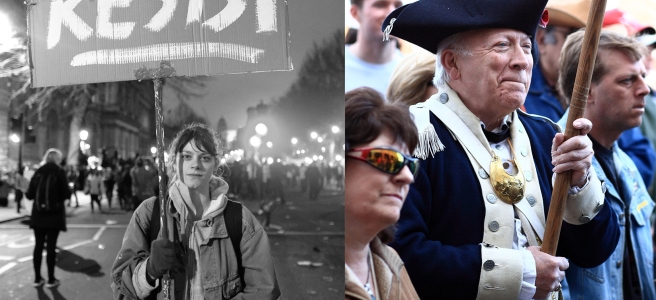Secret messages and subversive communication are nothing new, but when social media gets added to the mix things become – as Toby would say – interesting.
In this episode, we get help understanding this phenomenon from Mark S. Luckie, the former head of media for Reddit and, before that, manager of journalism and media for Twitter. We discuss the real-life rise of rogue and alt Twitter accounts, plus how Toby uses secret messages in his own novels. We also kick off what’s sure to be a long conversation about The Handmaid’s Tale and talk about what happened when a marketing campaign for Amazon’s The Man in the High Castle went just a little sideways.
THE FICTION: In addition to Toby’s first book, The Vaults, we talked about The Handmaid’s Tale (spoiler: subversive communication turns out to be a pretty big thing in the book), The Man in the High Castle (both Philip K. Dick’s novel and Amazon’s adaptation), the Black Panther reboot and The Drowned World by J.G. Ballard.
IRL: Here’s more on the legal battle between Twitter and the federal government over @ALT_uscis. Also: This story from The New York Times with some great quotes from Twitter’s court papers and how Amazon’s clever #resistanceradio marketing campaign was misunderstood.
P.S. Mark S. Luckie has a really cool (and decidedly non-dystopian) new project underway. It’s called SouledOut Cinema, and you should check it out here.
 Propaganda is a key ingredient in dystopian narratives. It’s also present in many aspects of real life. To learn more, Toby and Meg talk to award-winning filmmaker and author Paul Fischer. His book –
Propaganda is a key ingredient in dystopian narratives. It’s also present in many aspects of real life. To learn more, Toby and Meg talk to award-winning filmmaker and author Paul Fischer. His book – 
